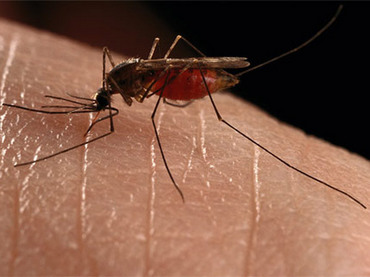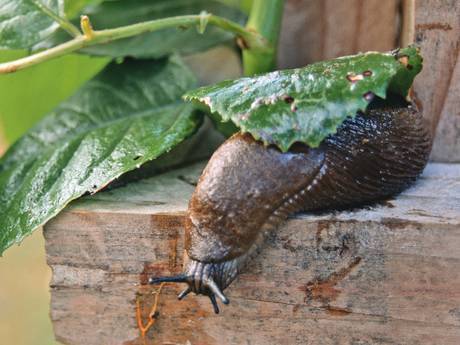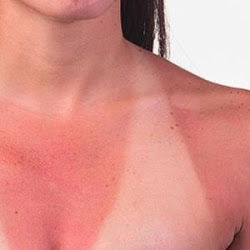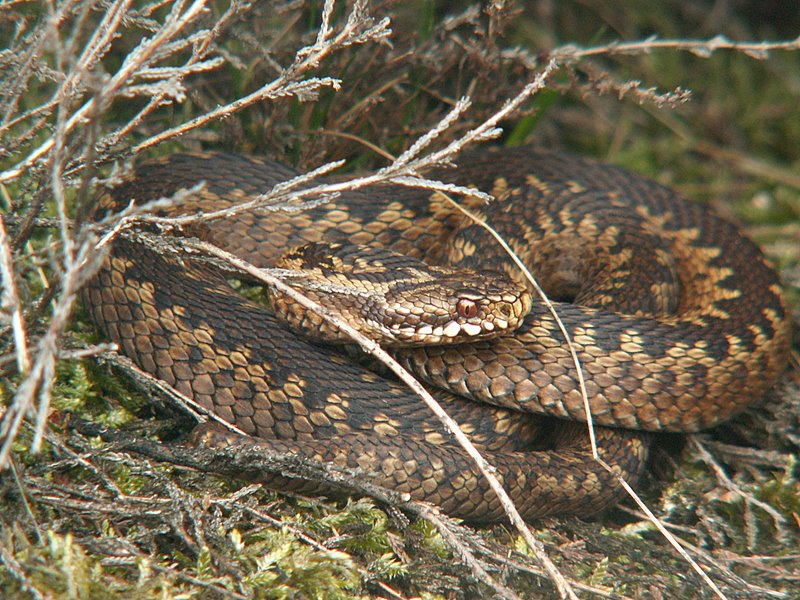A Swedish summer's nuisances
Yes, there are some. Not many, far from deadly unless you're extremely unlucky but, alas there a few ...
-
 Did you know that mosquitoes are what birds and bats feed on? The amount of mosquitoes is an important reason why migrating birds return to Sweden in summertime.
Did you know that mosquitoes are what birds and bats feed on? The amount of mosquitoes is an important reason why migrating birds return to Sweden in summertime. -
-
A Swedish summer's nuisances
Here we know them as mosquitoes, in Sweden they are called “myggor” – call them what you want, they are a summer problem. As are of course ticks, slugs, and snakes. Swedish biologist Lars-Åke Janzon tells us exactly what it is these summer nuisances do and how we can protect ourselves from them. Let’s start with the mosquitoes. The female mosquito stings and sucks blood. The venom she injects is weak, but the subsequent itching is what may actually cause infections. Protect yourself against mosquito bites by using insect repellent along with long sleeves, and long pants. Avoid moist areas, where mosquitoes like to be. Stay inside in the evening and nighttime. Did you know that mosquitoes are what birds and bats feed on? The amount of mosquitoes is an important reason why migrating birds return to Sweden in summertime. -
 Another of summer's nuisances: The Spanish Slug (or "mördarsnigeln" in Swedish). Did you know that the most effective way to get rid of it is to kill it, by putting it in the freezer?
Another of summer's nuisances: The Spanish Slug (or "mördarsnigeln" in Swedish). Did you know that the most effective way to get rid of it is to kill it, by putting it in the freezer? -
-
A bee or wasp sting hurts, but is normally not dangerous. There are, however, people who are extra sensitive. In Sweden an average of two people a year die of a bee sting. Avoid them by avoiding colorful clothes and heavy perfumes. Do not put your lunch table or picnic near one of their nests. They like all the things we like (except vegetables and water). Did you know bees and wasps ear larvae and other harmful insects in our gardens? They also drink nectar and pollinate flowers.
-
 Cancer research shows sunscreen doesn't necessarily prevent some skin cancers - if you'll be in the sun longer than 30 minutes, wear sunscreen but also cover up and wear a hat. (But don't avoid the sun altogether, as it helps create vitamin D, an important vitamin.)
Cancer research shows sunscreen doesn't necessarily prevent some skin cancers - if you'll be in the sun longer than 30 minutes, wear sunscreen but also cover up and wear a hat. (But don't avoid the sun altogether, as it helps create vitamin D, an important vitamin.) -
Ticks suck your blood and spread serious diseases. According to Janzon, ticks are the most dangerous animals in Sweden. You can protect yourself against Lyme disease by removing the tick within 24 hours, and there’s a vaccine against tick-borne encephalitis (TBE). To avoid ticks, make sure to cover up your body, preferably in light-colored clothing, so that you can spot them should they attack. It may help to eat garlic and drink alcohol, as garlic and alcohol are said to deter them. “They are there only for their own sake, and could care less whether they are useful or not,” says Janzon.
-
 A “huggorm” or European adder. Watch where you are walking, if you're in an area where there might be snakes. If you get bitten by one of these adders, you must see a doctor. Photo: Piet Spaans
A “huggorm” or European adder. Watch where you are walking, if you're in an area where there might be snakes. If you get bitten by one of these adders, you must see a doctor. Photo: Piet Spaans -
Spanish slug sounds better than their Swedish name, which is “mördarsnigel” or “killer slug”. These slugs show up in droves and eat whatever greens they can find in your garden. There are several tricks to keep them at bay: everything from beer traps to barriers of saw dust and biological control. The most effective way to get rid of them? Pick them up and kill them, by putting them in the freezer. “Hard to see what good they do. Perhaps you can make lubricants out of them since they are so slimy,” says Janzon.
-
 Nights continue to be just as magical as earlier in the summer.
Nights continue to be just as magical as earlier in the summer. -
A sunburn is a mild form of burn, but your skin won’t forget it. Sunburns may cause cancer later in life. It also makes your skin age prematurely. Protect yourself by wearing long sleeves and long pants, and use sunscreen with an SPF of at least 15. If you’re in the sun, avoid getting burnt by staying only short periods. Don’t avoid the sun altogether though, vitamin D is created when we’re out in the sun and that vitamin has positive effects on certain diseases.
-
Sweden's only poisonous snake is the adder. The snake may attack if it feels surprised, threatened or cornered. A bite from an adder is poisonous and those who get bitten should always go see a doctor. When you’re out in areas where there are snakes, watch where you are going, don’t sneak, the snake will curl away if it senses your steps. Snakes eat field-mice and other mice, and thereby reduce the risk of these small rodents getting into your house.
-
-
-
